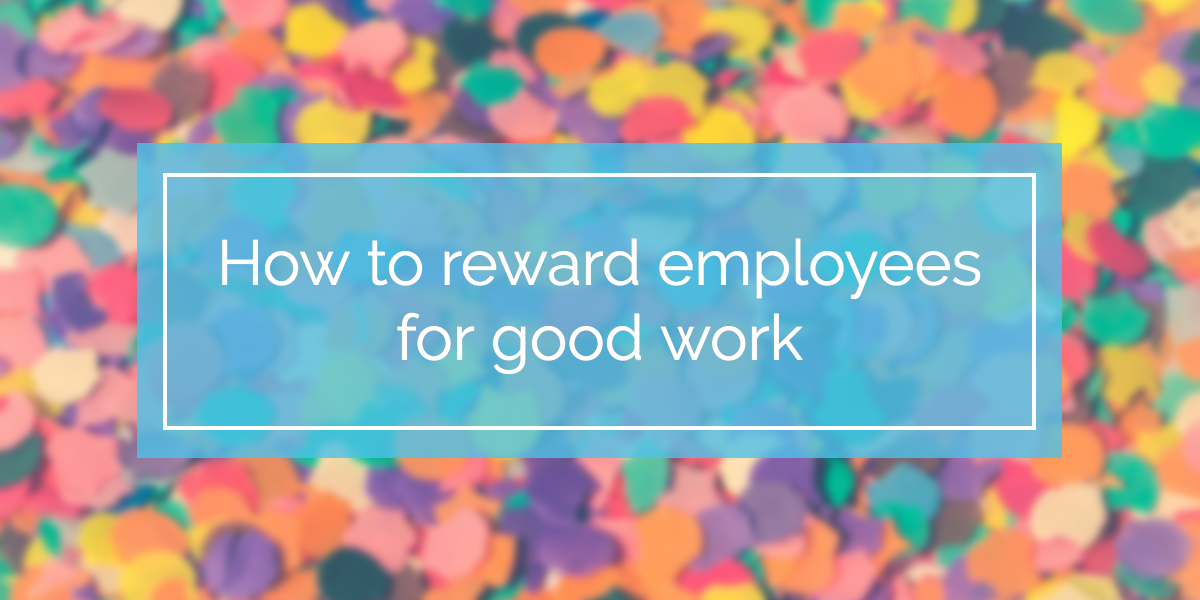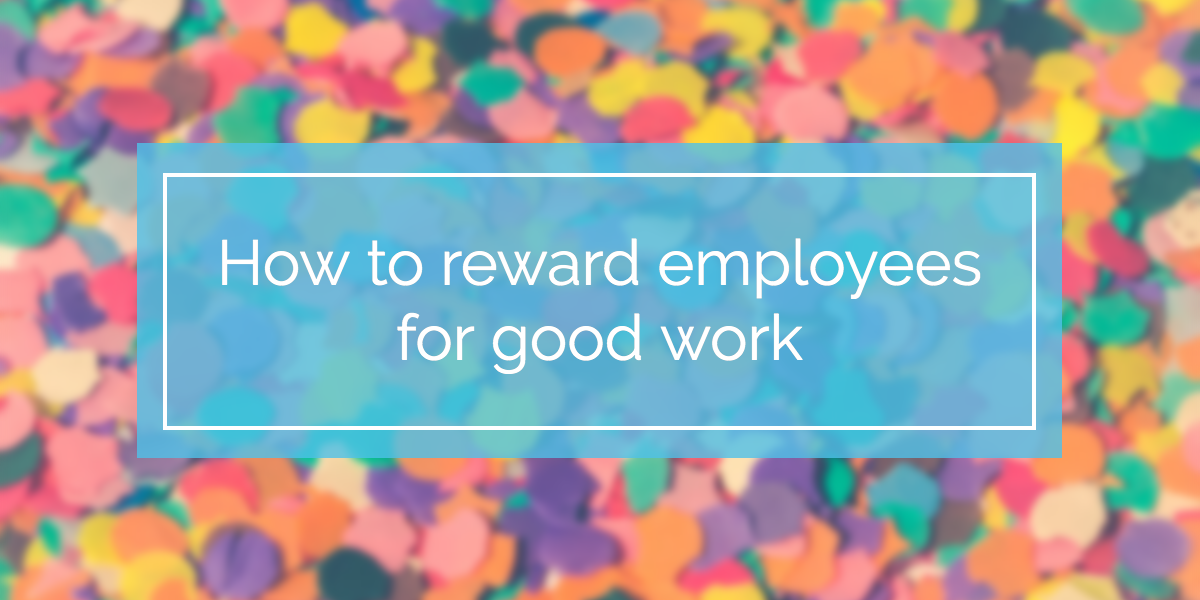
Elementary school teachers and parents of young children have long been known to use sticker charts to incentivize positive behavior. They’re onto something that managers and employers should take note of: to increase morale and productivity, a little recognition goes a long way.
While stickers may not be a big draw for adults in the workplace, managers can still see some pretty impressive results from making a concerted effort to recognize a job well done. According to Gallup’s State of the American Workplace:
“Workplace recognition motivates employees, gives them a sense of accomplishment and makes them feel appreciated for their work. The act of recognition also sends messages to other employees about what success looks like. In this way, recognition is both a tool for personal reward and an opportunity to reinforce the desired behavior to other employees.”
That’s a lot of benefits for something that may only require minimal effort. Not only does recognition motivate individual employees, it ripples out to create a more positive workplace for everyone. If managers in your workplace aren’t currently in the habit of reinforcing positive performance, here are some easy ways they can start:
Start simple
Worried that recognizing employees will require big expenditures and tectonic shifts in the company’s culture? Good news: a simple “thank you” is free, takes only a few seconds, and can go a long way toward improving employee engagement.
However, that doesn’t mean that managers should start throwing around compliments constantly. Before you thank an employee for their work, consider the following:
Does this deserve recognition?
When managers thank employees for every minor task, the words quickly lose their meaning. Make sure to save positive reinforcement for times when employees have really gone the extra mile.
Should this recognition be given publicly or privately?
To acknowledge an employee who’s performed their everyday tasks exceptionally well, it may be better to say something in a one-on-one conversation. But if the employee completed a major project or solved a big problem, it might warrant a public acknowledgment, or even an award or certificate. Again, this is beneficial for both the employee receiving the recognition as well as for other employees who may feel motivated by knowing that hard work pays off.
Is this feedback sincere and specific?
General phrases like “you’re doing a great job” don’t mean much, especially if employees hear them all the time. And while naming someone “Employee of the Month” may be a little more special, it doesn’t say anything about what they’ve done to earn the spotlight. Instead of blanket statements or broad titles, take time to think about what specific aspects of their jobs your employees are getting right, and comment on those things.
Actions speak louder than words
When employees are continually given positive feedback in performance reviews and recognized for their contributions, it may be time for their managers to take action to help them level up. In many cases, a promotion may be the next best step. But if there isn’t currently a job opening, or if the employee isn’t interested in moving up the ladder, there are plenty of other ways to show appreciation for consistent good work.
Consider offering great employees more challenging or interesting work assignments to keep them engaged. Collaborate with them to determine what kind of tasks would be most engrossing for them so that this is seen as a reward and not an added burden. Some high performers may enjoy having the opportunity to share some of their expertise, either by training and/or mentoring another employee, or by presenting at a company meeting.
Another way to recognize great work is to invest in employees’ professional development by offering additional training opportunities. Paying for them to attend conferences, workshops, or online coursework can demonstrate to an employee that your company is pleased with their contributions and is committed to helping them continue to grow. This option also means your strongest employees will become even more competent and engaged in their work.
Don’t overlook great work
Whether you choose to recognize good work with a promotion, learning opportunities, or a simple note of thanks, it’s important not to let your employees’ accomplishments go without acknowledgement. Failure to do so may result in disengaged employees and high rates of voluntary turnover, which are both expensive and destructive to morale.
If regular employee recognition isn’t already a part of your company’s culture, it may take some intentional conversations with leaders throughout the organization to start incorporating formal and informal ways to express gratitude to employees. A little push may be all you need to develop a culture where your best employees feel noticed, appreciated, and nurtured into being the best they can be.
